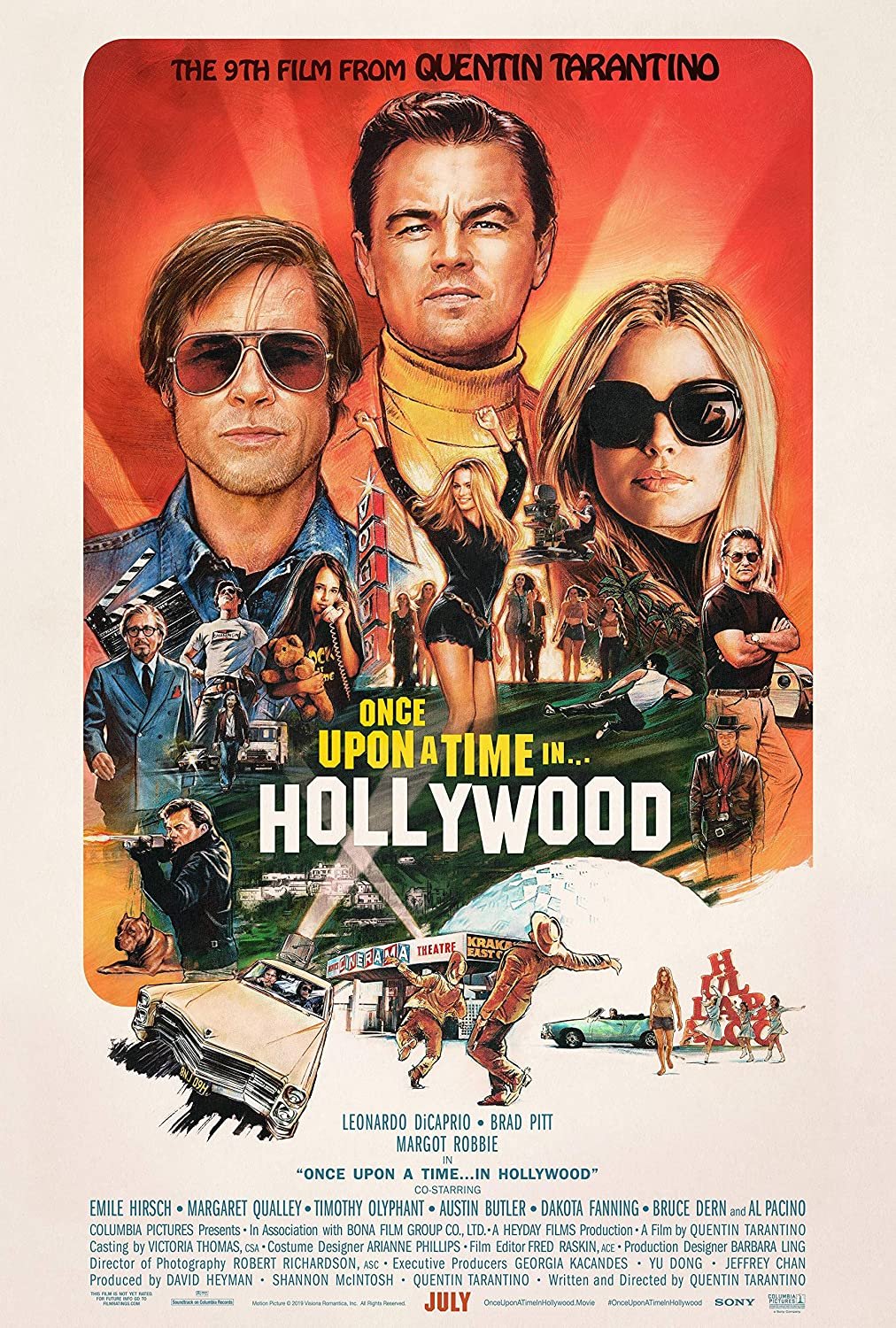Dish of the Day
Just some film musings of a more succinct, spontaneous and sometimes seditious nature:
Sunday, February 19, 2023
Today’s “Dish of the Day” has a review of mine that was inspired by a post in one of the film related Facebook chat rooms. This includes the Cinema Cafe group (all readers are encouraged to join here: https://www.facebook.com/groups/902349343110685). As usual, my thoughts on the following motion picture are with the minority views.
Once Upon a Time... in Hollywood (2019)
Many of Tarantino's former indulgences, i.e. over simplified revenge motives, juvenile macho posturing including loud celebratory pronouncements, pop culture pandering, are noticeably absent, however, so are his attributes: personality and situational development, revealing dialogue, a recognisable theme besides just a trip down memory lane and his now familiar revisionist history finale. *
I cannot fathom what enthusiasts find purposeful here except for its lovingly restored time period and the filmmaker’s distinct character introductions. As soon as one senses even a whiff of a thread or path, we're off on some other short-lived tangent of unrealised potential. Many of the undeveloped individuals barely relate to (let alone are invested in) one another (neighbours, that’s it?) or the events taking place. Sharon goes to see a movie she's in but what of it? Rick is fretting over being a has-been but where does that go? What's Cliff really about?
A standout scene is Rick Dalton’s appearance in the western “Lancer” especially when he has trouble remembering some dialogue and afterward berating himself in his trailer. Leonardo DiCaprio’s dual performance as Dalton and the character he’s playing on TV is captivating as he shifts between two different emotional intensities, both of prodigious proportions. The problem is that even this lengthy scene in “Lancer” and Rick’s follow-up self-abasement lead to no greater awareness either for Dalton or us. It’s a terrific tempest but it still winds up in the tiniest of teapots.
People who are first believed to be important (like those played by Al Pacino, Kurt Russell, or Bruce Dern) come and go with startling irrelevance. They remain only slightly more incidental than the main players.
One question this viewer kept asking was how in the world Q.T. was going to justify his film's title. Once upon a time this director’s top priority was to provide an acutely felt reason for each of his characters' unique behavioural responses but now, after being stranded in this random world of disconnectedness, what’s being communicated here seems as inconsequential as the three dots that follow “Once Upon a Time.” No wonder he wrote a novel to give some meaning to his film.
* Unlike Inglorius Basterds in which the famous filmmaker reinvents his own historical outcome with a strong intention, the same approach to concluding Once Upon a Time… in Hollywood is insufficiently anchored to the preceding events. For example, one sees why Shosanna is, right from the beginning, totally dedicated and emotionally invested in the consequences of her planned revenge. Same goes for The Basterds and those assisting them in their Churchill approved plan. Comparatively, in his latest film, the Manson family wind up at the wrong address. This means the only reason Tarantino seemingly has for turning the past inside out, is to concoct an alternative conclusion his audience can feel good about.
(Out of 5 Treasure Chests)
All responses are not only welcomed but encouraged in the comments section below.
Hope to see you tomorrow.
A.G.

